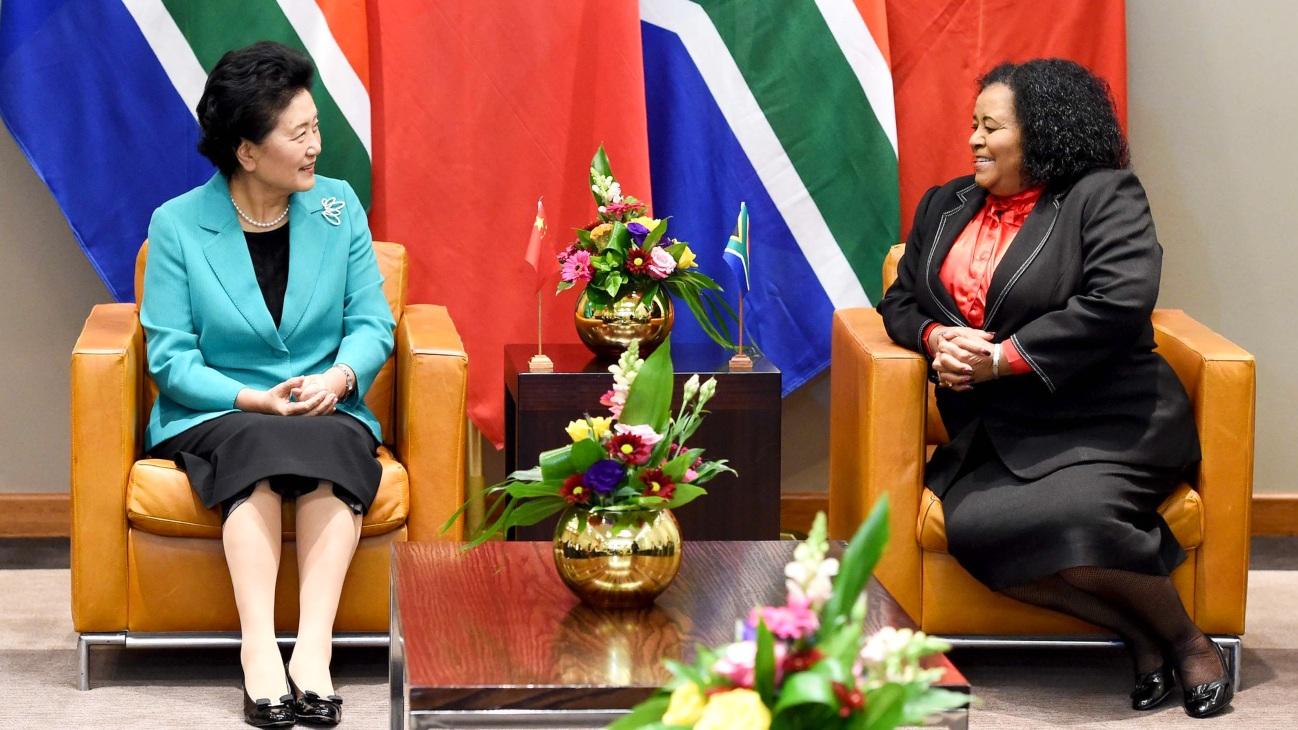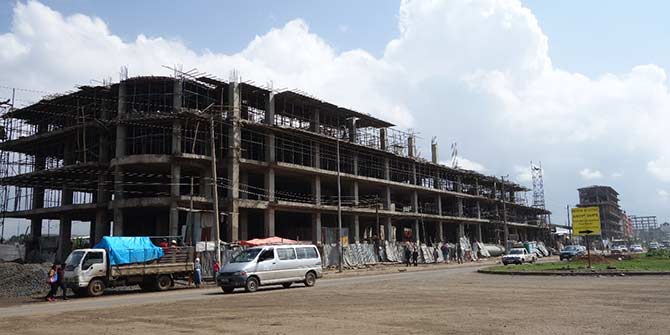LSE alumnus Waiswa Nkwanga argues that the only way African countries can sustain economic growth is by building a strong manufacturing industry.
Too much of the economic analysis on Africa recently has focused on the continent’s relatively impressive growth rates driven by a consumption boom, improved governance and economic management as well as surging commodity prices. But almost no one talks about the meagre contribution of manufacturing, and the ways in which it is likely to impact growth in the long-term.
In fact, Africa manufactures less today than it did ten years ago before the boom. In 2000, manufacturing accounted for 12.8 per cent of GDP and the share of manufacturing exports was 43 per cent. However, by 2008 manufacturing had dropped to just 10.5 per cent of GDP and the share of manufacturing exports declined to 39 per cent. In addition, the region’s share in global manufacturing value added fell from 1.2 to 1.1 per cent in the same period, according to the UNCTAD report.
A case in point: remember the African Growth Opportunity Act (AGOA), which sought to increase sub-Saharan Africa-US trade, diversifying African exports, and facilitating Africa’s integration in the global market through duty-free and quota-free access to the US market? It failed because African countries just could barely manufacture anything. The largest and easiest manufacturing sector where most of these countries had the potential was in the clothing and textile sector, yet only a handful of countries with some industry attempted to exploit it albeit temporarily.
Why does manufacturing matter? Without getting too technical, manufacturing matters, firstly, because of linkages and opportunities it creates for sustained growth, employment and poverty reduction. When AGOA was first introduced, it stimulated some industrial activity mainly in the apparel sector, creating at least 300,000 new jobs and providing livelihoods for millions of people.
Secondly, for poor resource-based countries, manufacturing enables them to diversify their economies, making them less vulnerable to instabilities associated with commodity exports. According to an IMF survey, natural resources account for a significant portion of merchandise exports in 20 African countries. A World Bank report shows that seven of the ten sub-Saharan countries that experienced growth above 6 percent in 2010 and 2011 were oil or mineral-rich.
Finally, experiences from other countries confirm that manufacturing matters. If you follow US politics you know that manufacturing and job creation were the most important issues to influence the outcome of the election. Obviously, we know that China was stagnant for centuries and then started growing in the 1980s when it began to industrialise faster than the West, as did other Asian countries.
Meanwhile in Africa, it appears to me that analysts and policymakers are decoupling industrialisation and economic growth. Consider the recent debate between economists and authors William Easterly and Dambisa Moyo, hosted by The Economist. When asked to make emerging markets predictions for 2013 , neither directly mentioned manufacturing.
For Easterly, the future of the emerging markets is hinged on one factor— whether these countries make the transition to democracy. On the other hand, Moyo was very optimistic and gave three reasons: the low debt burden enjoyed by the emerging economies, improvement in governance and economic management in many emerging and frontier economies, and rising labour costs and aging populations in the West and Asia. According to her, these three factors will inevitably drive investments to poorer and younger regions. (According to McKinsey & Co, Africa has the world’s youngest population with nearly half under 20 years old.)
These are interesting arguments but I don’t buy either one.
To me, there is one truly disturbing element in these arguments—the underlying assumption that industrialisation will occur automatically as countries democratise and capital, labour and productivity increase and, by extension, that states should play a modest role in this area.
There is nothing about Easterly and Moyo’s predictions that guarantees long-term growth and the emergence of a vibrant manufacturing sector in the absence of a pragmatic industrial policy. This requires the state to act aggressively just as the US and countries such as China are currently doing.
It is not that African analysts and policymakers don’t know what needs to be done to achieve sustained growth and create jobs, although some don’t. It is that most of them are not prepared to tackle the big challenges facing the continent; thus, they tightly hold on to economic indicators to buy time while creating the illusion that prosperity is around the corner.
Ultimately, what everyone is really saying is that Africa should wait to industrialise until other countries are done or until they are democracies. In the mean time our young men and women should continue producing children and hope that will eventually persuade industries to move to them.
It is a catchy thesis though incredibly ridiculous. The anticipated “population dividend”, for example, could turn out to be a sham at best and a curse at worst. There is evidence to suggest that too many unemployed young men can potentially cause instability, in which case both democracy and growth get stifled. Unemployment is already dispiritingly high in Africa. In 2009, the World Bank reported high youth unemployment in Africa as high as high as 83 percent in Uganda, a country with the highest youth population (50 percent of the population is bellow age 25 years). Never mind the fact that millions of young Africans don’t have access to primary education, making the region less attractive to foreign investment.
There is also the issue of waiting. The Economist recently reported that as the gap in labour costs decreases, companies are now reversing the trend of offshoring their manufacturing to other countries around the world. In other words, we might be witnessing the end of offshoring as we know it. What does this mean to Africa?
Looking forward, what Africa needs, in addition to what it already has, is a sound and aggressive industrial policy directed and managed by its own governments. This will enable them to anchor down the gains that have been made, create jobs for the unemployed, and spread prosperity to permit democracy to flourish. And there are no excuses as even the staunchest free-market states are doing the same.







Beautiful piece. A deliberate developmental state is a must-step for Africa to develop